Check out the website: https://lenspoliticalnotes.com Look at the recent Political Notes and Len’s Letters on the website:
August 18th, 2023 Len’s Letter #64 Attorneys General and Their Presidents
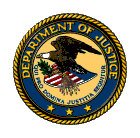
Seal of the US Justice Department
On June 9 of this year, when the Justice Department’s indictment of Donald Trump was unsealed, Joe Biden made an announcement. He had not spoken to Attorney General Merrick Garland and he would not speak with him. Reuters described this as a continuation of a pattern of Biden distancing himself from the investigation of Trump.
Distancing did no good. Republicans still claim that Merrick Garland’s indictment of Donald Trump was political. If you looked hard enough, you would probably find a sentence by some Republican that read something like the following: “Former President Donald Trump, cheated from the Presidency in the corrupt 2020 election and the probable 2024 Republican nominee for President of the United States was indicted by Attorney General and failed Supreme Court nominee Merrick Garland acting at the bidding of President Joe Biden.”
Below I look at the relationship between Presidents and their Attorneys General. Some of the particularly distinguished Attorneys General were independent of the President who appointed them. A surprisingly high number of Attorneys General managed the political campaigns of the President who appointed them.
A close relationship between the President and his Attorney General does not necessarily lead to corruption. Even when the Attorney General is a political operative, the close relationship is not necessarily corrupt.
As I considered the Attorneys General in the past ninety years, I developed a kind of Attorney General taxonomy:
- Old Friends and allies.
- Compatible with shared values and personally interested in the success of their President
- Political Operatives
- Campaign chairmen, politically experienced and politically expedient.
- Lawyers first
- Distinguished figures or aspiring distinguished figures who brought respectability to the President and his views.
- Compliant lawyers
- Less distinguished figures who did the President’s bidding
- Politicians in their own right
- Former electeds who, out of consideration for their own ambitions or out of habit, thought and acted independent of the President.
Does this taxonomy help us think about Presidents and the distance they have kept from their attorneys general? What leads to the corruption of a presidency? Let’s look
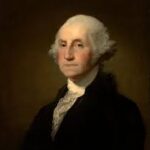
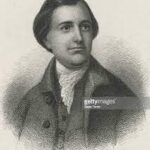
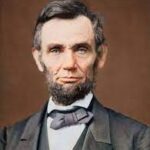
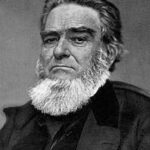
Washington. Randolph. Lincoln Bates
I am not going to back as far as George Washington’s first Attorney General appointee – Edmond Randolph, the former Virginia Governor who worked assiduously to keep the peace between Thomas Jefferson and Alexander Hamilton and was appointed Secretary of State when Jefferson resigned. Nor will I go as far back as Abraham Lincoln’s Attorney General, Edward Bates, Missouri’s former Attorney General. Bates supported Lincoln’s arrest of seditious northerners, but disagreed with Lincoln on the crucial issue of the Emancipation Proclamation and recruitment of Blacks into the army. He resigned, not over those issues, but because he had been passed over for a Supreme Court appointment. Randolph and Bates were both politicians in their own right.
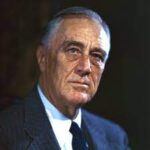
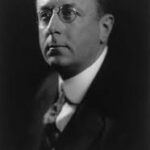
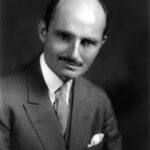
FDR Cummings. Biddle
Begin with Franklin Delano Roosevelt. Homer Stiles Cummings was his first Attorney General. He was a political operative. His successor was less of an operative and more of a man who was a lawyer first and whose vision was consistent with Roosevelt’s.
Cummings served for six of the years FDR was President. No one thought Cummings was apolitical. A graduate of Yale College and Yale Law School, he practiced law in Stamford, Connecticut and was mayor of that city for several years. He lost elections to Congress and to the US Senate, but was active in national politics, serving as a member of the national Democratic Committee, its Vice Chair, and Chair. No longer on the national committee in 1932, he was influential enough to be a factor in gaining support for FDR’s nomination for President in that year. Roosevelt would have named Montana’s Senator Thomas Walsh as Attorney General, but Walsh died two days before the inauguration. Instead, FDR turned to Homer Stiles Cummings.
Cummings worked to reorganize the Justice Department. He also worked to protect the New Deal. He advised Roosevelt that the Trading with the Enemy Act 1917 allowed him to close the banks, to regulate gold hoarding as well as exports. Cummings won that case before the Supreme Court, but lost 8 subsequent New Deal cases making him a leading advocate for expanding the Court. The “court-packing” effort failed, but the Supreme Court was transformed through modified opinions, resignations, and deaths. Cummings retired to return to the private practice of law in 1939
Francis Biddle was FDR’s other Attorney General who served for a period of time – 4 years from 1941-1945. An aristocratic graduate of the Groton School, Harvard College, and Harvard Law School, a descendent of Edmond Randolph, he was a New Dealer. Biddle was Chair of the National Labor Relations Board and chief counsel to the Congressional Committee investigating the Tennessee Valley Authority before he was appointed as Solicitor General and then as Attorney General.
During World War II, Biddle was an unrelenting opponent of dissidents. He sought to shut down Father Coughlin’s neo-Nazi publications, prosecuted Socialist Worker Party Members, and tried unsuccessfully to deport union leader Harry Bridges who had been convicted for lying about his membership in the Communist Party. Biddle’s plan to try eight Germans in military tribunals for espionage and planned sabotage was upheld by the Supreme Court. Two of the 8 cooperated and were sentenced to jail. The others were executed. Biddle opposed the wartime internment of American citizens of Japanese descent. He worked on behalf of Blacks – prosecuting southern employers who were practicing peonage, a kind of slavery for debt. He also conducted the first federal investigation of a lynching.
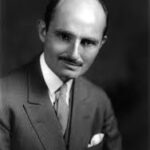
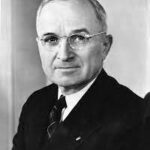
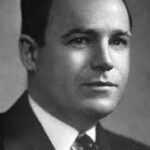
Harry Truman Clark McGrath
Harry Truman wanted Tom Clark as Attorney General because he thought the two were compatible. Few Presidents entered office in greater need of a friend and ally than Truman. Though they were relatively recent acquaintances, they had become friends. Clark’s successor was an elected politician.
Clark was Attorney General for three years. He and Truman shared a disdain for corporate theft. As Attorney General, Clark focused initially on war fraud crimes and anti-trust violations. The effort to control the economy had a focus that went beyond corporations. During the war, Clark successfully prevented the head of the Mine Workers from leading a strike.
In replacing Biddle, Clark was, if anything, stronger in his support of civil rights for African Americans. He filed federal charges against Ku Kluxers who attacked Black veterans returning from the war and filed amicus briefs to the Supreme Court on cases such as one that struck down racial real estate covenants. He shared Harry Truman’s anticommunism. Among other things, Clark created a list of subversive organizations.
Harry Truman’s next Attorney General appointment was an experienced politician. J. Howard McGrath had been Rhode Island’s governor and its senator. Before he became Attorney General, he was Chair of the Democratic National Committee and managed Truman’s successful 1948 campaign for President. McGrath’s strategy alienated the south, but brought Blacks on board.
McGrath is best known for the circumstances under which he left office.
Subordinates in the Attorney General’s office initiated an investigation of gifts received by cabinet officers and McGrath refused to cooperate with the investigation. When several cabinet members threatened to resign if required to make visible the gifts they had received, McGrath and Truman agreed that it was better to clean up the future than investigate the past. McGrath cancelled the investigation. Nevertheless, the furor about corruption left Truman feeling a necessity to blame McGrath and ask him to resign. Truman’s letter to McGrath acknowledging his own role in the cancellation of the investigation hung in McGrath’s beach cottage as a testament to his integrity until his death.
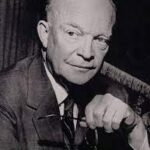
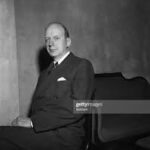
DD Eisenhower Brownell
Republicans could appoint political operatives as Attorney General. Eisenhower appointed Nebraskan and Yale Law School graduate and political operative Herbert Brownell.
Brownell remained Attorney General for four years. He had practiced law in New York, served in the New York State Assembly, and represented Aristotle Onassis (helping Onassis bypass regulations). He chaired the Republican National Committee from 1944-1946. Brownell managed Thomas Dewey’s campaign for governor and his unsuccessful campaigns for President in 1944 and 1948. He was a crucial figure in persuading Eisenhower to run for President as a Republican. He was also crucial in persuading Eisenhower to select Richard Nixon as his running mate.
Brownell and Eisenhower continued some of Truman’s policies. They joined the anti-communist effort – exposing Harry Dexter White as a Russian spy for instance. They extended civil rights efforts. Brownell drafted what became, in a weakened version after the Senate deleted voting protections, the Civil Rights Act of 1957. Brownell resigned believing he had successfully desegregated the Little Rock schools (though subsequently the city closed the schools for a year to attempt to avoid desegregation) and after Eisenhower declined to nominate him to the Supreme Court. Eisenhower believed Southern Senators would reject the nomination.
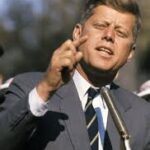
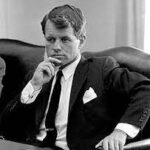
JF Kennedy RF Kennedy
In US history, there has not been a closer relationship between the President of the United States and the Attorney General than the partnership of John F. Kennedy as President with his brother Robert F. Kennedy as Attorney General. RFK was both a political operative and the President’s closest friend.
With a BA from Harvard and a law degree from Virginia, after naval service and work in the Justice Department, RFK worked for Senator Joe McCarthy’s Investigations Subcommittee. Subsequently he worked as chief counsel to Senator John McClellan’s “racket’s committee.” There he developed his animosity toward Teamster Union head Jimmy Hoffa. Republicans would have preferred a focus on Walter Reuther.
When President Kennedy nominated his brother to be Attorney General, major newspapers called the younger brother inexperienced. The nomination was pushed through with a voice vote that might not actually have been a majority. While criticism of the family connection was in the background, it was rarely as explicit as criticism of RFK’s youth and inexperience.
RFK was a crucial figure in the make-up of the cabinet – nixing Senator Fulbright as Secretary of State because of his support for segregation, supporting McNamara after being in on the interview. RFK continued on to be his brother’s political advisor and as the person JFK could count on to get things done. He took the lead in foreign policy issues ranging from the Cuban Missile crisis to the Berlin airlift crisis, including restoring a more positive relationship with the Soviet Union. He took JFK’s place on a trip to Japan where he earned accolades. He conducted a persistent effort against organized crime, even attempting to shift J Edgar Hoover away from Communism to deal with the mafia. RFK was a crucial figure in support of civil rights including protection of the Freedom Riders and James Meredith’s entering the University of Mississippi.
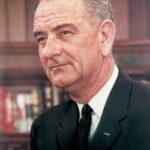
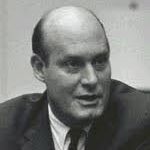
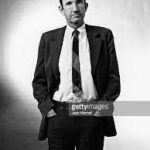
Lyndon Johnson Katzenbach Clark
It was a few months before RFK resigned and Lyndon Johnson promoted RFK’s recommendation, the Deputy Attorney General Nicholas Katzenbach, to the top job. Katzenbach and his successor were Attorneys General who were Lawyers First, lawyers with a vision consistent with the domestic vision of the president.
While Lyndon Johnson was getting major civil rights legislation through Congress, Katzenbach was facing down Alabama Governor George Wallace’s stand in the school house door at the University of Alabama and on behalf of segregated public schools. Katzenbach was a key figure in recommending what became the Warren Commission, intended to allay conspiracy speculation about JFK’s assassination. In 1966, Katzenbach resigned, explaining that his inability to get along with FBI Director J. Edgar Hoover was the reason. His prohibiting the FBI from wiretapping Martin Luther King was probably a factor in that bad relationship.
Lyndon Johnson appointed Deputy Attorney General Ramsay Clark as Attorney General. Son of Supreme Court Justice and Harry Truman’s Attorney General Tom Clark, Ramsay Clark continued the civil rights efforts – desegregating schools, protecting civil rights marches, and voting rights. The Vietnam War was becoming an increasingly divisive issue for the country. Clark oversaw the prosecution of The Boston Five draft resisters and, years later, expressed regret at having won the case.
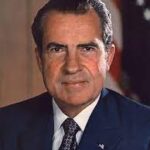
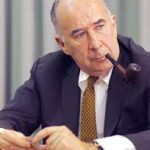
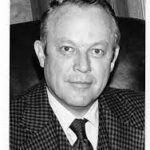
Richard Nixon Mitchell Kleindienst
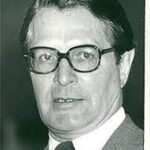

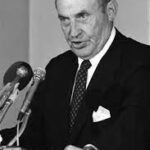
Richardson Bork Saxbe
Richard Nixon appointed John Mitchell Attorney General. Mitchell was a Political Operative while his Deputy, Richard Kleindienst was simply compliant. Nixon tried to regain public regard by appointing Elliot Richardson, a Lawyer First, but that did not work for him. Robert Bork, a more compliant Lawyer First wasActing Attorney General. He did not really help Nixon either. A politician nearing the end of his career, William Saxbe, focused on his own issues.
John Mitchell chaired Nixon’s 1968 campaign for president before being appointed as Attorney General, He chaired Nixon’s 1972 campaign for reelection before resigning as Attorney General. Practiced in legal deceit, Mitchell had created, for Nelson Rockefeller, forms of municipal bonds that did not require public approval. Mitchell may have sabotaged the Vietnam Peace talks so Nixon could denounce the war’s failure during the campaign.
How Mitchell dealt with “law and order” and school desegregation for Nixon are examples of his thinking. To get control of crime, he believed illegal wiretaps were just fine. To manage Nixon’s effort to recruit the South to become Republicans, he attempted, not altogether successfully, to slow walk school desegregation. To win elections, he was willing to use dirty tricks.
Watergate was Mitchell’s downfall. Despite his testimony that he knew nothing ahead of time about the break in at the Watergate, there was substantial evidence that he participated in its planning. Guilty of conspiracy, obstruction of justice, and perjury, he was eventually sentenced to 2 ½ to 8 years in prison and disbarred.
Nixon appointed Richard Kleindienst as Attorney General to replace John Mitchell. Kleindienst had been Deputy Attorney General. Mitchell had made Kleindienst appointment as Deputy a condition for his becoming Attorney General. Kleindienst got himself in trouble because he complied with Nixon and aide John Ehrlichman who urged him to drop the government’s lawsuit against ITT. Notwithstanding their “suggestions” Kleindienst falsely advised Congress that no one had interfered with the case. During the Watergate scandal, but over the ITT issue, Kleindienst resigned and was eventually convicted of contempt of Congress for refusing to testify about the matter.
Nixon appointed former Secretery of Health, Education and Welfare and then Secretary of Defense, Elliot Richards, as Attorney General, presumably to bring some respectability to the position. Nixon preferred compliance. He ordered Richardson to fire special prosecutor Archibald Cox. Richardson refused and was fired by Nixon.
Nixon appointed Solicitor General Robert Bork as Acting Attorney General and Bork fired Archibald Cox. Nixon next appointed Ohio Senator William Saxbe as Attorney General.
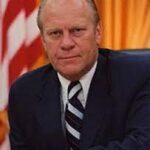

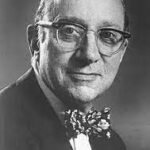
Gerald Ford Saxbe Levi
Gerald Ford, ascending to the Presidency after Richard Nixon’s resignation, inherited William Saxbe as Attorney General. Saxbe continued the oversight of the break-up of AT&T before being named Ambassador to India.
Selecting someone who was a lawyer first, Ford appointed the President of the University of Chicago, Edward Levi, as Attorney General. In that role, Levi revised the FBI guidelines regarding wiretapping and No-Knock entrance into someone’s home. Here is an oddity. When there was a Supreme Court vacancy, Levi advised President Ford: Nominate either the former Solicitor General Robert Bork or Appeals Court Judge John Paul Stevens. Good that Ford nominated Stevens.

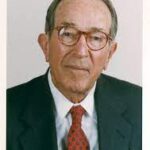
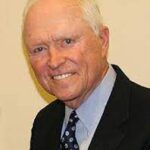
Jimmy Carter Bell Civiletti
Jimmy Carter appointed Appeals Court Judge Griffin Bell. While Griffin Bell did not have the cache of a former President of the University of Chicago, this was an appointment of a lawyer first, a lawyer whose vision was consistent with that of his president. The same was true of Bell’s successor.
Under Bell, the drama associated with the FBI continued. The Justice Department indicted FBI Acting Director L. Patrick Gray, former Assistant Director Edward Miller, and officer Mark Felt for authorizing or participating in office or home break-ins of New York City radical activists. Five Justice Department officials resigned to protest the failure to bring charges against more officials. Charges were eventually dropped against Gray (who was later indicted, convicted, and pardoned for other Watergate acts). Miller and Felt were indicted, convicted, and pardoned. The pardons were all issued by Ronald Reagan.
If the name Mark Felt rings a bell, it should. Years later he acknowledged he was “deep throat,” the informant for Washington Post reporters Bob Woodward and Carl Bernstein in their investigation of Watergate.
Carter appointed Deputy Attorney General Benjamin Civiletti. Noticed by Bell when they were in private practice, he had been recruited to the Justice Department and eventually became Deputy. He argued before the International Court of Justice for the return of hostages from Iran. He advised that the constitution prohibited the government from operating if Congress had not passed a budget – paving the way for partial government shutdowns. He recommended and Carter agreed to commute the sentences of four Puerto Rican nationalists who attacked and shot at Members of Congress.

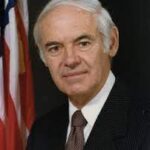
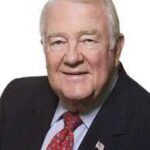
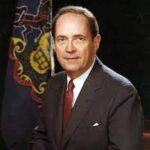
Reagan Smith Meese Thornburg
Ronald Reagan appointed William French Smith as Attorney General. Smith was a friend and ally of Reagan’s. Smith’s successor, Ed Meese, was a political operative. Reagan’s final appointment as Attorney General, Richard Thornburg, was a politician in his own right.
The Sentencing Commission Smith created set harsh guidelines. He supported Reagan’s welfare reform and authorized the use of IRS information to combat organized crime.
In 1985, Reagan appointed Counselor to the President Edwin Meese as Attorney general. A close advisor to Reagan when he was governor of California, he had been central to the crackdown on protesters at the University of California. As Counselor to the President, he created the politically crucial relationship with the evangelical community. He also created controversy when he claimed there was no evidence of Americans being hungry. Democrats slowed the confirmation of his appointment based on what they saw as his ethical problems.
Meese was instrumental in extending a Bechtel pipeline from Iraq to Jordan for which an inquiry found there were ethical lapses, but no crimes. He was investigated by a special prosecutor for his role in covering up the Iran Contra scandal. He was again found not to have committed crimes. In response to criticisms of Meese, Reagan said “If Ed Meese is not a good man, there are no good men.”
In 1988 Reagan appointed former Acting Attorney General and Governor of Pennsylvania Richard Thornburg as Attorney General. He had become governor promising to crack down on corruption. As Attorney General, his Department attacked white collar crime. Defense contractors, public officials, and bankers from the Savings and Loan crisis were prosecuted.

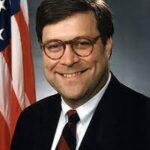
GWH Bush Barr
George HW Bush appointed Acting Attorney General William Barr as Attorney General. A political operative, his politicking was as much internal as external. Barr is not the only familiar name that will show up in this segment.
Barr initially earned a reputation for frankness when he criticized the Roe v. Wade decision. That reputation began to disappear when the Saudi run BCCI bank was endangered by an investigation, though the investigation went nowhere. Barr claimed there had been coordination problems in the investigation, but prosecutors later suggested that Barr prevented the indictment. Others argue the slowdown occurred because the CIA used BCCI to gain intelligence.
Robert Mueller was in charge of the Justice Department investigation. Senator John Kerry, investigating drug issues, turned information over to the Manhattan District Attorney who obtained a plea agreement from BCCI and an indictment of Frist American Bank Chair Clark Clifford.
Barr introduced a questionable innovation – bulk surveillance of phone records to find narcotics traffickers. The Justice Department inspector general found this project was begun without a review of its legality.
In 1992, the Independent Counsel Lawrence Walsh, investigating Reagan’s Iran-Contra arrangements, found illegal cover up conspiracies at the highest level of Reagan’s administration. Barr persuaded GHW Bush to pardon Defense Secretary Caspar Weinberger who had not been tried as well as the five convicted Defense Department officials. Barr defended his advice claiming that Walsh was nothing more than a head hunter with an interest in convictions rather than justice.


Bill Clinton Reno
Bill Clinton had trouble appointing an Attorney General. His first two nominees did not get past the starting gate. Janet Reno, who he did appoint, was neither a friend, nor a political operative. The former Miami Dade County State Attorney was a lawyer first.
Janet Reno is criticized for the stand-off with the Branch Davidians during which a terrible fire caused the death of 76 people. She was able to complete a similar standoff in Montana with no casualties at all. She oversaw the capture and conviction of the Unabomber as well as the capture of Tim McVeigh of the Oklahoma City Bombing and the capture and conviction of the perpetrators of the 1993 World Trade Center bombing. She oversaw the return of Elian Gonzalez to his father in Cuba over the objections of Cubans in Florida. She was an early recognizer of the importance of using DNA in criminal prosecutions. In response to the call for an investigation of President Clinton, she appointed Robert Fiske as Independent Counsel. Congress created new rules for that appointment which led to a judicial panel selecting the disastrous Ken Starr for the role. (Starr was equally disastrous as President of Baylor University.)
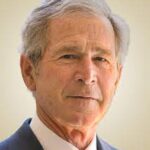

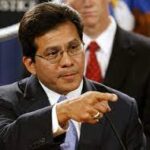
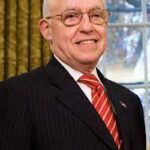
GW Bush. Ashcroft Gonzalez Mukasey
George W Bush appointed John Ashcroft, the Senator from Missouri, as Attorney General. Ashcroft was a Politician in his own right, with views that generated opposition from Democrats and caused problems in his tenure. He was followed by the compliant Alberto Gonzalez and the more independent Lawyer First Michael Mukasey.
When Bush appointed Ashcroft, Democrats were suspicious of his opposition to abortion and his opposition to busing to eliminate school segregation. As a result, 48 Democrats opposed his appointment.
As Attorney General, Ashcroft generated controversy when he granted a stay of execution to Tim McVeigh, the Oklahoma City bomber. The FBI’s failure to disclose thousands of pages of documents to the defense was a legitimate basis for a 30 day stay. Less legitimate, apparently, was Ashcroft’s insistence on traveling by private jet. He never disclosed the threat that led to his high flying. Other controversies included claims, that he denied, that the Justice Department had sought people’s library records or purchases under the Patriot Act. He became a figure of fun when he covered a partly nude statue of a woman in the Justice Department Building; a villain when he followed false claims of voter fraud and reauthorized the use of torture; and a hero when, on his sick bed, he refused to authorize the President’s domestic intelligence program that had been found to be illegal.
IN 2005, GW Bush appointed Alberto Gonzalez as Attorney General. A former Texas Supreme Court Judge and White House Counsel, he supported GW Bush’s warrantless surveillance and so-called enhanced interrogation techniques as well as the firing of several US Attorneys who refused secret directives to investigate GW Bush’s political opponents.
In 2007, GW Bush appointed Michael Mukasey as Attorney General. He might have had a quick confirmation after the adoption of a new rule that reduced White House influence on Justice Department investigations and the staff that conducted them. Mukasey’s clear path to Senate confirmation ran into a major obstacle when he rejected absolute opposition to torture.
As Attorney General, Mukasey opposed any reduction in the 100-1 ratio regarding punishment of different types of cocaine. He warned that the reduction would release thousands of violent criminals. He failed to note, though he certainly knew, that most of those released would be Black men. He opposed the death penalty for those held in Guantanamo. His reasoning was that the death penalty would create martyrs. He also claimed, erroneously, that the World Trade Center attack would have been stopped if warrantless wiretapping were permitted.

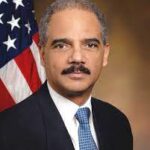
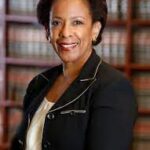
Barack Obama. Holder Lynch
Barack Obama appointed former US Attorney and former Deputy Attorney General Eric Holder as Attorney General. Holder, Obama’s legal advisor during this campaign, was a new kind of Political Operator. His successor Loretta Lynch was more of a Lawyer First.
As a US Attorney in DC Holder oversaw the conclusion of the prosecution of Congressman Dan Rostenkowski but as attorney general dropped the corruption case against Senator Ted Stevens. As Attorney General, he was an advocate for hate crime laws. International issues were particularly important during the nomination process and during his time as Attorney General.
Holder defended the legality of the assassination of Osama bin Laden and of the use of drone strikes against terrorists. He announced planned trials for 9/11 attackers, but Congress, favoring military tribunals, took that out of his hands. He enforced the voting rights act, urged comprehensive immigration law reform and stopped enforcing the Defense of Marriage Act. He sought a balance between national security and the rights of the press, proving to be more willing to prosecute reporters than was expected of him. The House Oversight Committee voted, along party lines, to find him in contempt of Congress for failing to provide sufficient documents about the “Fast and Furious” operation which failed in its effort to track guns that were allowed to be sold and sent to Mexico, hoping to arrest drug cartel leaders there.
In 2015 Obama appointed former US Attorney and NY Federal Reserve Bank of NY Board Member Loretta Lynch as Attorney General. As US Attorney, she had prosecuted police who abused Abner Louima and consulted with Eric Garner’s family about prosecuting police regarding Garner’s death. She prosecuted Republicans and Democrats for corruption. She announced the Justice Department would bring charges that could carry the death penalty against Dylan Roof for the South Carolina church shooting and charges against the participants in the National Wildlife Refuge right wing occupation stand-off. She created a controversy in 2016 when she met with Bill Clinton in Phoenix where each of their planes were on the tarmac. They both denied discussing the election year controversy regarding Presidential candidate Hillary Clinton’s emails.


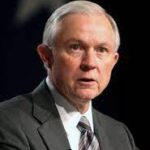
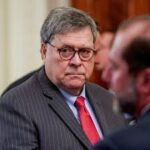
Donald Trump Yates Sessions Barr
In 2017, Donald Trump appointed then fired Acting Attorney General Sally Yates, the only Acting Attorney General, other than Robert Bork, to make enough news to warrant a mention. She was certainly, a Lawyer First. Trump’s first attorney general Jeff Sessions was a Politician in his own right. His second was Bill Barr, still a Political Operative.
Donald Trump fired Acting Attorney General Sally Yates after she instructed staff not to prepare arguments to defend Trump’s travel ban from Muslim-majority countries. Her tenure in the role was 10 days.
Trump appointed US Senator Jeff Sessions of Alabama as Attorney General. As a US Attorney in 1981, Sessions refused to prosecute a federal case against two Ku Kluxers for murdering a young Black man in Mobile. The two were, nevertheless, convicted of murder. In 1985, he prosecuted three Black community organizers for tampering with absentee ballots. They were acquitted. In 1986, Reagan nominated him to a District Court. He did not get a majority vote in the Senate, the pivotal “no” vote coming from his fellow Alabaman Howell Heflin.
Trump fired FBI Director James Comey based on Sessions’ recommendation. Sessions rescinded 200 pages of guidance documents to US Attorneys including such advice as to avoid fines for people in poverty. Evidence surfaced of Sessions’ post 2016 election communication with Russian officials after he had denied such contacts. As a result, he recused himself from investigations of the 2016 election making Trump furious.
Trump appointed William Barr to his second stint as Attorney General. Barr served for less than two years. During those two years, according to CNN, he “repeatedly and unapologetically prioritized Trump’s political goals while furthering his own vision of expansive presidential power.” He issued a misleading summary of Robert Mueller’s investigation of Russian interference in the 2016 campaign before Mueller could define the result. He interfered with an investigation of allies of the Turkish president by the US Attorney of the Southern New York District and then falsely claimed the US Attorney had resigned.
These were hardly the only instances of his intervention. He created the Durham investigation to find illegal behavior by Hillary Clinton or associates in the 2016 campaign, an effort that was almost entirely unsuccessful. Barr’s cooperation with Rudy Giuliani’s efforts to create a criminal case regarding Joe Biden and his son Hunter in connection with Ukraine affects partisan politics to this day. As part of an effort to undermine confidence in the 2020 election, he falsely and knowingly claimed that 1,700 absentee vote ballots in Texas had been tampered with.
Attempting to recover his reputation, Barr testified to the Committee investigating the January 6 insurrection that he had told President Trump that the 2020 election fraud claims were nonsense (He used a stronger word) and that Venezuela’s President Hugo Chavez could not have interfered in the election because he had died 7 years earlier. Trump, sometimes, he explained, could become detached from reality.
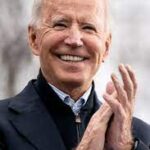
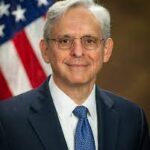
Joe Biden. Garland
Joe Biden appointed Merrick Garland as Attorney General. Garland is a cautious Lawyer First and, though he was the most conservative Democratic option available for the Supreme Court to then President Obama, Mitch McConnell prevented the Senate from considering that nomination. Republicans have argued, as noted in the fictitious quotation at the beginning of this piece, that Garland is compliant to a president they have deemed to be corrupt. The Republican position is a calumny against both the President and the Attorney General.
Consider Joe Biden. Republicans suggest Joe Biden’s corruption is proven by the number of houses he owns. The house he owns with a cottage he used to rent out, he bought after selling a house for $1.4 million in 1996 that was purchased in 1974 for $185,000. The beach home he owns can be attributed to money he earned in between his time as Vice President and President. He stopped renting a house in Virginia near where Jill taught in 2020 when his new job came with a house.
Recent Congressional testimony that, while as vice president, he took phone calls from his son Hunter who put him on speaker phone while he was having dinner with clients may have been enough of a reason for Merrick Garland to respond affirmatively to David Weiss’s request to become Special Counsel. The new title does not appear to expand Weiss’s authority, but could extend that authority regardless of who is President and who is Attorney General.
Consider Merrick Garland. Prior to the disputes related to Hunter Biden, there are no suggestions the Garland was anything other than a moderate and thoughtful attorney and judge. In his first large case in private practice, he represented insurance companies seeking to support a statute mandating the use of seat belts – not a bad metaphor for Garland’s outlook on life. The Republicans don’t trust David Weiss either. After all, he had been a Republican Deputy US Attorney in an office held by a Democrat fired by Jeff Sessions. It is no consolation to them that Weiss was appointed US Attorney by Donald Trump. Republicans would count that as one of Trump’s mistakes. Now that Merrick Garland has appointed him as a Special Counsel, they have recanted their proposals that he be appointed Special Counsel and see it as part of a cover up.
From Nixon to Reagan to Trump, the Republicans have found ways to corrupt American politics and have sought Attorneys General to help them.